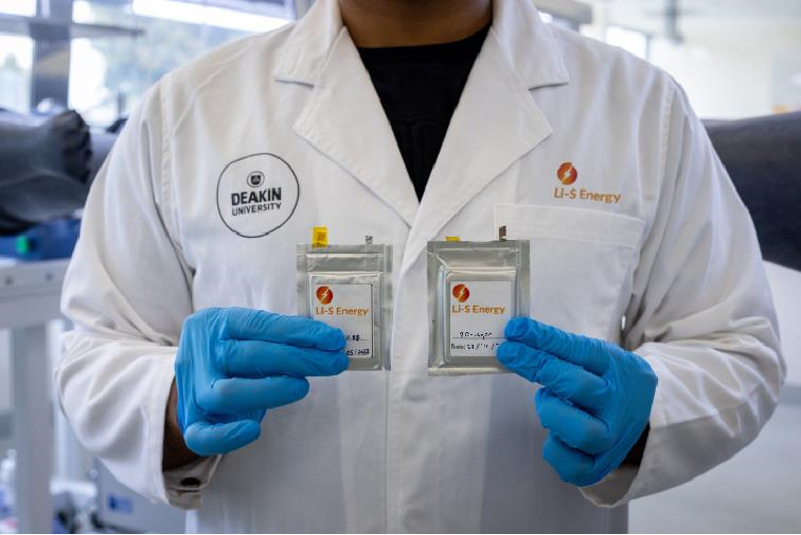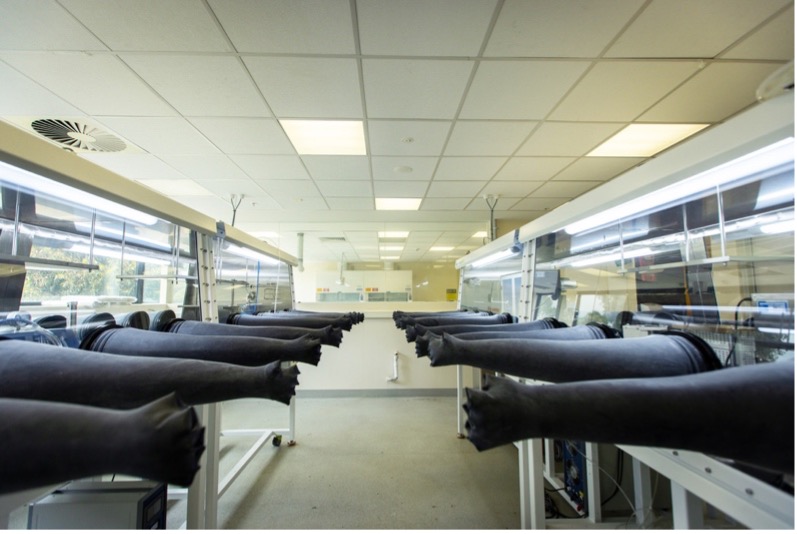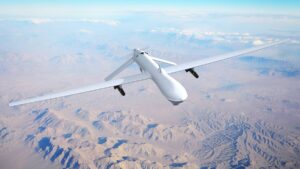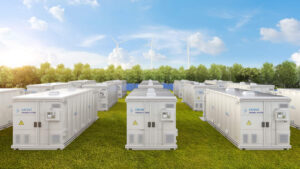Li-S Energy gets super-charged up for 2023

Pic: Via Getty Images
Special Report: As the world switches on to electrification to meet decarbonisation targets, it’s an exciting time to consider investing in companies developing new, more efficient battery technologies.
One Australian company at the forefront of battery cells innovation is Li-S Energy, which is looking forward to a busy 2023 after signing some big-name collaboration agreements backed up by serious R&D progress.
The secret sauce behind the name
Lithium sulfur (Li-S) batteries are attractive candidates for next-generation energy storage because sulfur is abundant, low-cost and sustainable – unlike the heavy metals used in lithium-ion batteries.
They’re also recognised by leading scientists as offering potentially the highest energy storage.
Li-S batteries are also lighter, making them highly attractive for drones, electric planes and other EVs.
The trouble so far with lithium sulfur batteries is that they have tended to fail after a low number of recharge cycles, making them uncommercial.
But Li-S Energy (ASX:LIS) is now on its way to commercialising a decade of scientific research in the development of Li-S batteries.
With leading researchers at Deakin University the Brisbane-based company has shown that integrating Boron Nitride Nanotubes (BNNTs) and its patented nanocomposite Li-nanomesh into lithium sulfur batteries can create a cell approaching twice the energy density and a similar cycle life to that of consumer grade lithium-ion batteries.
Taking off
A significant agreement Li-S Energy inked in 2022 was with leading US e-aviation company magniX, which will test the potential of the company’s lithium sulfur and lithium metal cell technology for e-aviation applications.
magniX delivers a range of revolutionary propulsion solutions which have been flight tested in passenger aircraft including the eBeaver, eCaravan and most recently a Robinson r44 helicopter.
It’s also one of only two companies chosen by NASA to demonstrate electric aircraft propulsion (EAP) technologies and was awarded US$74 million as part of NASA’s electrified aircraft propulsion (EAP) project that’s part of a broader program set to advance e-aviation.
“For us, the magniX relationship is a key partnership in the e-aviation space, Li-S Energy CEO Dr Lee Finniear said. “MagniX is a true aviation pioneer. With systems already in flight and the credibility of e-aviation projects for NASA, we could not wish for a better partner as we drive our technology forward in this rapidly emerging market,”
Other collaborations include that with Boeing’s Insitu Pacific to develop batteries for uncrewed aircraft systems, or drones.
Li-S Energy has identified drones as a key sector where it has a competitive advantage due to the light weight of its batteries. This is a rapidly growing industry as drones are used increasingly by retailers and healthcare providers for home deliveries in the US and Europe, with Australia starting to follow suit.
Electric passenger and freight vehicles also benefit from lighter batteries and Li-S Energy is also continuing to develop collaboration opportunities with EV manufacturers after signing a deal Janus Electric to power electric trucks late last year.
Collaborators in high places
In a vindication of its outstanding lab results, Li-S Energy has been able to access industrial and research opportunities at Europe’s largest application-oriented research organisation, the Fraunhofer Institute in Germany.
On home soil, Li-S Energy has joined the Future Battery Industry Cooperative Research Centre (CRC) giving it access to leading researchers and partners across Australia.
It’s also a foundational industry partner in the Deakin Recycling and Renewable Energy Commercialisation Hub as part of the Commonwealth Trailblazer University program, which should result in close to $5 million of additional funding for the company over four years.
Scaling up results
Across 2022 Li-S Energy increased cell energy capacity of its extremely light and energy dense Li-S batteries by a whopping 400%, with testing showing BNNT and Li-nanomesh continued to extend the cycle life.
The company’s 20-layer cell demonstrates an energy density exceeding 400 Watt hours per kilogram (Wh/kg) in initial discharge cycles and Li-S expects to target 500Wh/kg in 2023. For context, many lithium-ion battery in EVs are 217Wh/kg.
It’s expecting to produce pouch batteries of up to 30 layers in the new year, which will yield even higher energy density.
Li-S Energy is focusing on the production of cells in the pouch cell format because of its flexibility and easy scalability for commercial use in the company’s target industries.
Another focus is developing lithium metal battery cells, which are lighter and more energy dense than lithium-ion batteries, but also more compact. The two technologies will give the company a broader reach into even more markets. These include passenger electric vehicles, with batteries for that market alone expected to be worth more than US$300 billion per year by 2035.

Research into development
Li-S Energy’s purpose-built Phase 2 facility at Deakin University’s main Geelong campus is built and being commissioned, with five new labs, new offices and two full production bays installed.
The company has also started the design and build of its Phase 3 — a 2MWh production line including what is potentially the largest dry (dehumidified) room in Australia, which will enable more automated production.
This phase, which is already fully funded, will scale up production to deliver the thousands of cells needed for EVs, drones and electric aviation trials.

With its combination of high-calibre partnerships, outstanding test results and new production infrastructure, Li-S is looking ahead to a dynamic 2023.
This article was developed in collaboration with Li-S Energy, a Stockhead advertiser at the time of publishing.
This article does not constitute financial product advice. You should consider obtaining independent advice before making any financial decisions.
Related Topics
UNLOCK INSIGHTS
Discover the untold stories of emerging ASX stocks.
Daily news and expert analysis, it's free to subscribe.
By proceeding, you confirm you understand that we handle personal information in accordance with our Privacy Policy.








